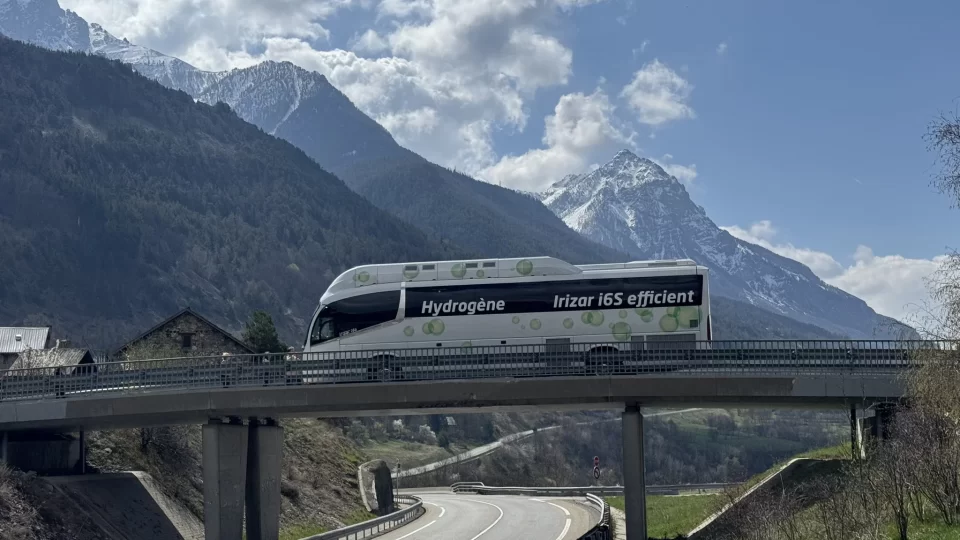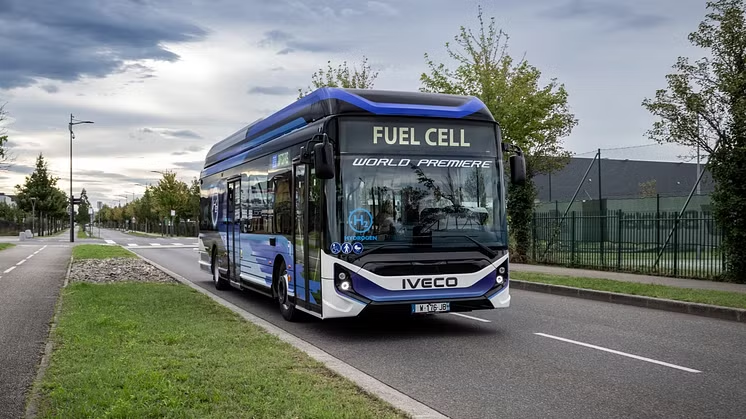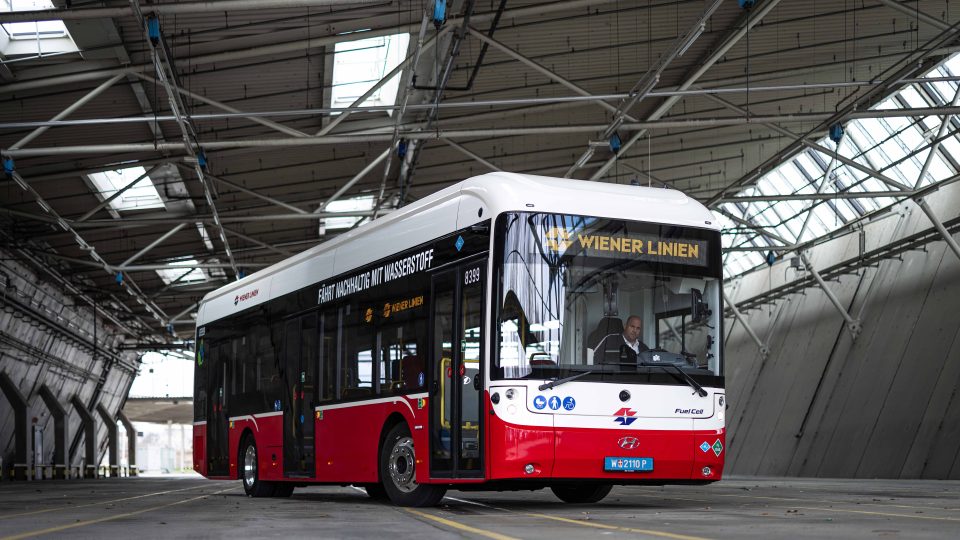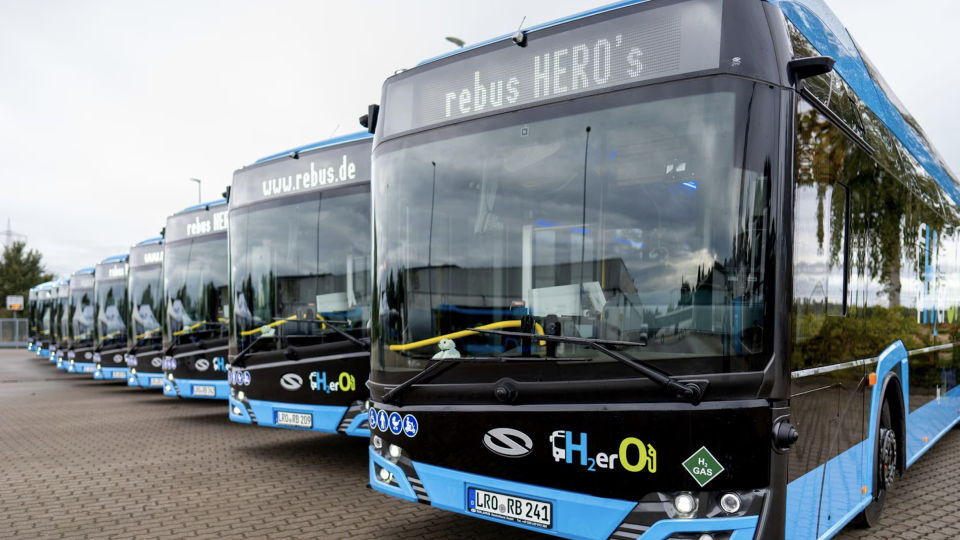RNV orders up to 75 eCitaro with fuel cell range extender. A new depot to be built in Heidelberg
Second order achieved for the Mercedes eCitaro Range Extender, the fuel cell bus from Daimler Truck. Verkehrsbetriebe Rhein-Neckar-Verkehr GmbH (RNV), headquartered in Mannheim, is accelerating its transformation to electromobility. Delivery of 40 eCitaro G vehicles with range extenders in 2023 and 2024 has now been fixed, with an additional option of 35 more articulated buses […]
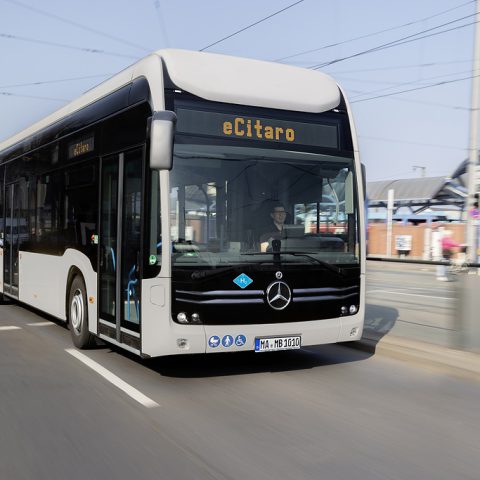
Second order achieved for the Mercedes eCitaro Range Extender, the fuel cell bus from Daimler Truck. Verkehrsbetriebe Rhein-Neckar-Verkehr GmbH (RNV), headquartered in Mannheim, is accelerating its transformation to electromobility.
Delivery of 40 eCitaro G vehicles with range extenders in 2023 and 2024 has now been fixed, with an additional option of 35 more articulated buses by 2027.
In spring of 2019, rnv was one of the first customers for the Mercedes-Benz eCitaro. Today, 36 of the all-electric city buses are already being operated at the Mannheim, Heidelberg, and Ludwigshafen locations. First order for the eCitaro REX was signed by German operator SWEG.
With Mercedes-Benz articulated buses with their fuel cells and hydrogen as range extenders, the electrification of our bus transport is entering a new phase
Martin in der Beek, Technical Director of RNV
RNV, a ceremony for new depot in Heidelberg
In the presence of Elke Zimmer, State Secretary at the Ministry of Transport for the State of Baden-Württemberg and Prof. Dr. Eckart Würzner, Mayor of Heidelberg and Christian Specht, Chairman of the Supervisory Board rnv, the first ground-breaking ceremony took place for the depot in Heidelberg with a hydrogen filling station that was also accessible to the public. At the same time, the company announced a major order for up to 75 fully electric Mercedes-Benz eCitaro G articulated buses with fuel cells as range extenders.
Six battery packs with the latest generation of lithium-ion batteries (NMC) form the basis of the power supply. They have a battery capacity of 392 kWh. The buses are also equipped with a fuel cell stack (provided by Toyota). This converts hydrogen from the six tanks of the articulated buses into electricity with a total capacity of 30 kg. This results in a stated total range of more than 300 kilometers.
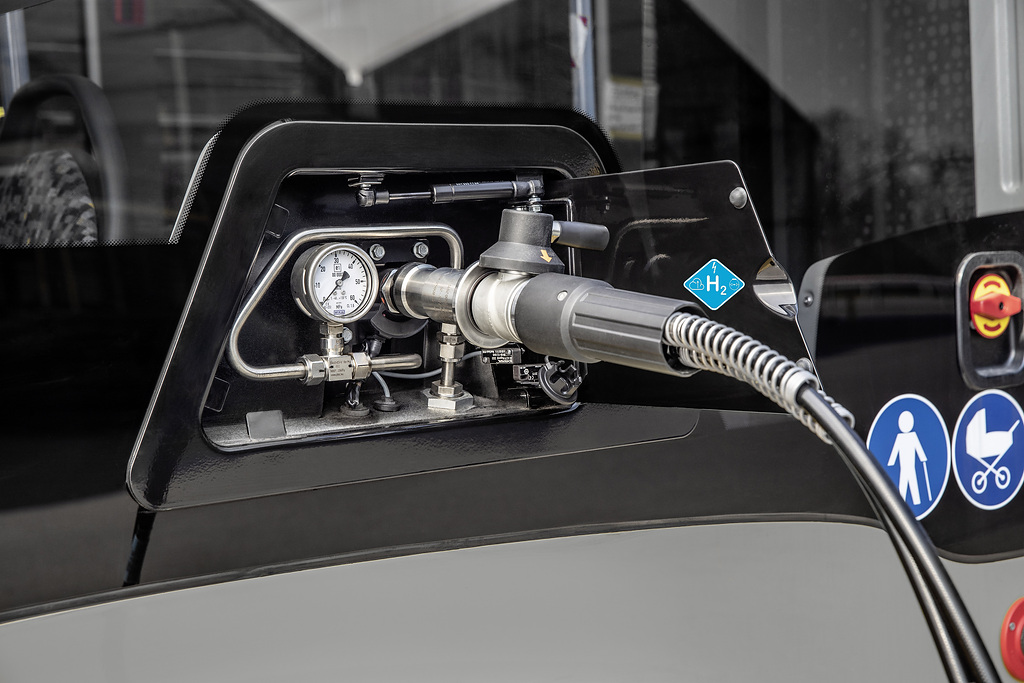
Mercedes eCitaro Range Extender in Heidelberg and Mannheim
The charging of the batteries and filling of the hydrogen fuel tanks always occurs at the depots of RNV or in their immediate vicinity in Heidelberg, Mannheim and Ludwigshafen. The new depot in Heidelberg can accommodate 27 electric buses with range extenders. Outside the depot, a filling station with two tanking stations will also be available to the public. With charging sockets on the left and right above the front axle, the Mercedes-Benz articulated buses are very flexible with regard to their positioning within the depot. Hydrogen is filled on the right side above the second axle in the direction of travel.
Both the center and rear axles of the articulated buses are powered. This ensures very high traction and good performance even on challenging sections of road. The electric motors close to the wheel hub produce 141 kW per wheel and achieve a torque of 494 Nm. This results in an outstanding torque of 11,000 Nm per wheel due to a fixed transmission ratio.
The interior features of the buses
From the handrails in pastel orange and a wood look floor to the Mercedes-Benz City Star Eco seating with the seats and backrests in blue-gray-orange fabric, the buses are very attractively designed, Daimler Truck states. Two special-purpose areas are provided for wheelchairs and pushchairs. Bicycles can be locked in place using a fastening strap. Numerous double USB sockets for passenger electronic devices as well as two large-format 29 inch TFT screens provide on-board information and entertainment.
Drivers sit behind a cab door with a fully glazed partition on an air-conditioned seat. From the electrically adjustable interior mirror and a refrigerator box for drinks to the storage box for an iPad, your workstation leaves nothing to be desired.
The same is true for the safety equipment. The active brake assistant Preventive Brake Assist and the turning assistant Sideguard Assist serve to protect vulnerable road users in particular. New: The side marker lights have a flashing function coupled to the direction indicator. The tire pressure monitoring system warns of any losses in pressure, while a reversing camera supports maneuvering as does the reversing warning signal. Active filters with antiviral function and filters for the blower heaters provide other forms of safety. Six dome cameras monitor the passenger compartment.
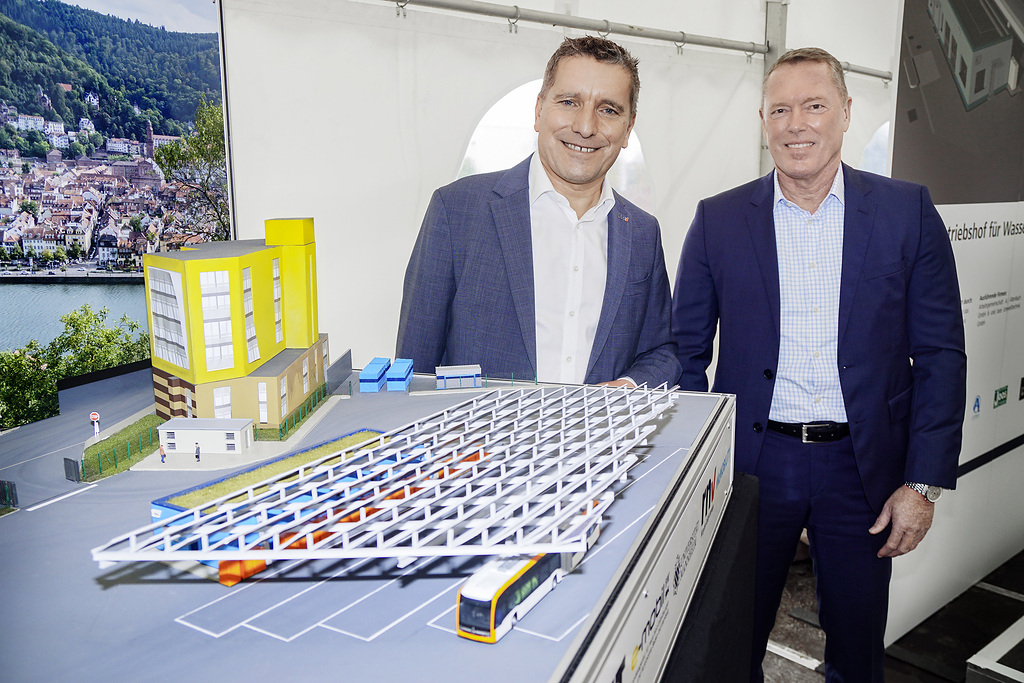
Electrification of bus transport enters a new phase
“With Mercedes-Benz articulated buses with their fuel cells and hydrogen as range extenders, the electrification of our bus transport is entering a new phase,” explains Martin in der Beek, Technical Director of RNV.
“The order is once again a great sign of trust by RNV in our company, for which we are particularly grateful. With the Mercedes-Benz eCitaro Range Extender, we are supporting our customers in the further development of locally emission-free mobility based on future-oriented hydrogen technology, and we therefore hope to be able to make our contribution to the quality of life in the cities of Mannheim, Heidelberg and Ludwigshafen,” added Mirko Sgodda, Head of Marketing, Sales and Customer Services at Daimler Buses.


